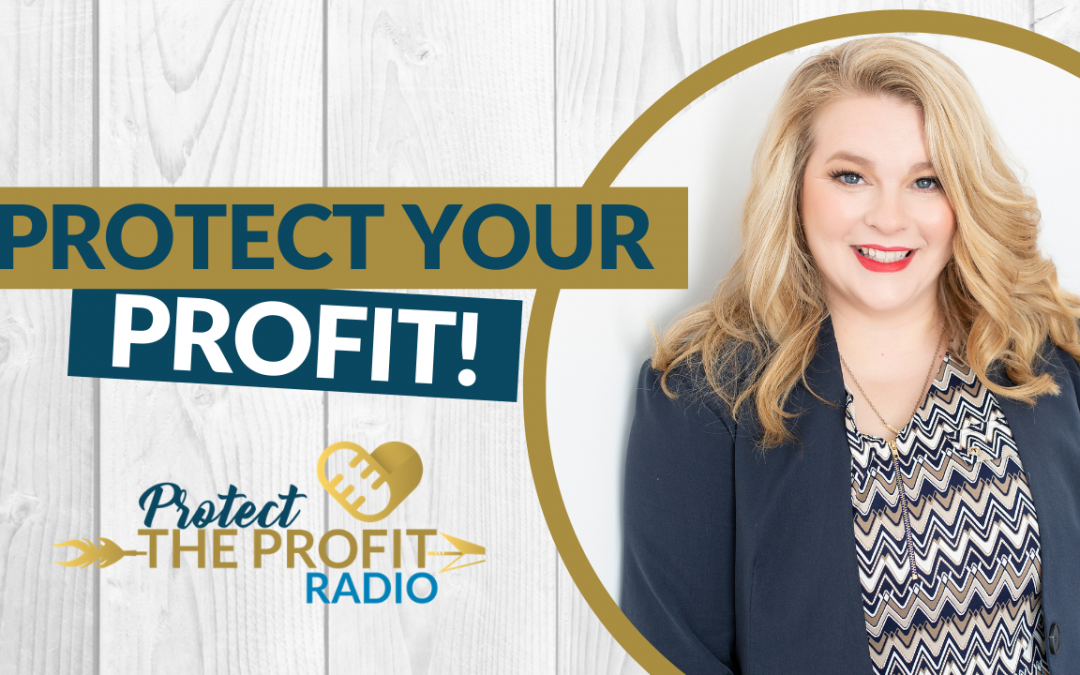Small Business Owners: Protect Your Profit by Minimizing Your Business Tax Rate
Our trailblazing founder Carlotta Thompson is a former IRS small business taxes expert. She used to audit business owners and realized that the small business tax rate can distress inexperienced entrepreneurs.
Once she decided that she needed a career change, she switched to assisting small business owners in understanding basic business tax rate concepts and helping them pay the least amount of tax legally possible.

Inspired? Like and comment below, or save this episode for future reference. Or share the video to spread the word!
Types of Small Business
But before we proceed with taxes and business tax rates, let’s first discuss the types of small businesses.
Sole Proprietors
Sole proprietors are business owners who conduct business alone and use their personal Social Security number. They are considered a pass-through entity and pay individual rates.
Limited Liability Company (LLC)
LLC is the most common type of small business today. In this type of business, owners are not personally liable for the company’s debt or liabilities. LLC owners file their taxes under an Employer Identification Number (EIN).
S Corporation
S corporations are Subchapter S or Small Business Corporations. These corporations don’t pay income taxes. Instead, the owners split their income or loss and report the amounts on their income tax returns. The government requires owners of S corporations to pay individual taxes.
C Corporation
C corporations are legal structures in which owners are taxed separately from the entity. These are the most common types of corporations, and the government taxes them on both the corporate and individual levels.
Tax Summary
- C corporations pay a flat rate of 21%.
- Sole proprietors, LLCs, and S corporations pay anywhere between ten to thirty-seven percent, depending on income and filing status.
- Sole proprietors and LLCs can deduct as much as 20% off their businesses before they compute their taxes.
Additional Small Business Taxes
Entrepreneurs filing small business taxes for the first time often discover they have to pay several business taxes.
Income Taxes
The government doesn’t exempt any business from paying income taxes. C corporations pay corporate rates, while all entities pay individual rates.
Estimated Taxes
Small business owners who expect to owe at least $1,000 in taxes should estimate and pay quarterly taxes. Unpaid estimated taxes will lead to interests and penalties. Check the due dates and payment period for your estimated taxes to avoid unnecessary payments.
Employment Taxes
Having employees leads to more taxes. Some of the taxes you have to pay as a business owner include:
- Social Security taxes
- Medicare taxes
- Federal unemployment (FUTA) tax
- Sales taxes
- Property taxes
You’ll also be responsible for turning over federal income tax withholdings to the government, which your employees will pay. Additionally, you will be charged particular excise taxes depending on the type of business.

Had any wild IRS experiences? Like and comment below, or save this episode for future reference. Or share the video to spread the word!
Tax Saving Tips for Small Business Owners
There are many tax avoidance strategies for small business owners. As an accounting firm headed by a former IRS agent, we can create a customized tax plan and use advanced techniques to minimize your taxes and maximize your profits. Here are some ways you can legally reduce your business taxes.
Higher Capitalization Limit
Setting a higher threshold for your fixed asset spending will allot more expenses for the current period. Doing so will lower your income and taxes.
Accelerated Depreciation
If you use an accelerated depreciation method, it increases the taxable depreciation expense in the current period.
Advance Asset Purchase
Sometimes, it makes sense to acquire assets sooner than necessary, like when a delivery truck is no longer efficient. Doing so will decrease your depreciation expense and improve your customer service.
Write Off Inventory and Receivables
Before the end of the year, check your inventory and receivables and write off anything outdated. Writing these off will reduce your taxable income.
Apart from these tips, we use advanced techniques to help you enjoy the least amount of tax legally possible. Get in touch with us today to unlock your full earning potential.

Intrigued? Like and comment below, or save this episode for future reference. Or share the video to spread the word!
In This Video
In this video, our founder Carlotta Thompson talks about her inspiration in pursuing taxes as a career. She was 14 when she realized she wanted to come after bad people stealing from the government.
Then, she became an IRS agent, which was nothing she expected it to be.
Carlotta witnessed the struggles of hard-working entrepreneurs who didn’t have the knowledge and skills to reduce their taxes. She experienced firsthand horrible moments of breakdowns, threats, and even crimes.
Ultimately, she had an epiphany and realized she wanted to help entrepreneurs the best way she knew how: maximizing their profits by minimizing their taxes.
Carlotta Thompson & Associates help businesses from coast to coast understand business tax rates and pay the least amount of tax legally possible through education, customized tax plans, and strategy-based bookkeeping.
If you are interested in our services, please visit carlottathompson.com/implement to learn how we can help and book a free consultation.



